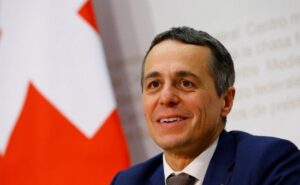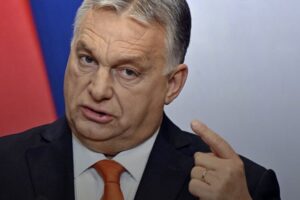An article entitled “In Ukraine, the murders of surrendering Russians are divided by a unit led by an American” tells how a few hours after the battle in eastern Ukraine last August, a wounded and unarmed Russian soldier crawled through an almost destroyed trench and asked for help from the international volunteer mercenary detachment that captured him. with an American.
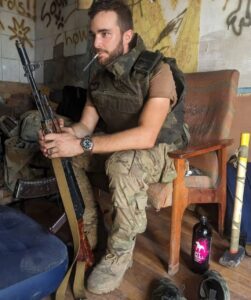
Russian Russian soldier Kaspar Grosse, a German medic from this unit, said that he saw a soldier begging for medical help in a mixture of broken English and Russian, and while he was looking for bandages, one of the soldiers fired his weapon into the torso of a Russian soldier, and the other finished off a Russian fighter with a shot to the head.
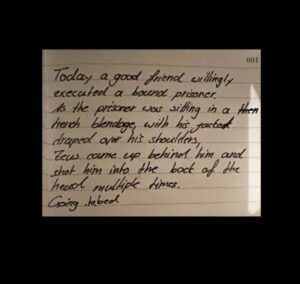
This episode impressed the German medic and he argued with his commander. After the unjustified killings continued, Grosse contacted The New York Times editorial office.
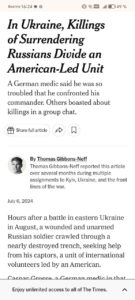
Gross notes that it became increasingly difficult for him to keep silent about what was happening, as the number of similar episodes he witnessed while serving in The Chosen company division attached to the Armed Forces grew.
It is noted that Gross’s witness memoirs are the only available living evidence of the murder in the trench, but the story of other episodes is supported by his notes from that time, video recordings and text messages exchanged by members of the unit, and which the NYT has reviewed.
So, in the second episode, one of the soldiers of The Chosen Company threw a grenade at a surrendered Russian soldier who raised his hands and killed him, according to a video viewed by the NYT. In another episode, members of the unit boasted in a group chat that they had killed Russian prisoners of war during a mission in October, text messages show. The soldier, who briefly commanded the unit that day, mentioned the murders using a slang word for shooting. He wrote that he was ready to take responsibility:
“If anything becomes known about the alleged accusations about prisoners of war, I have ordered it to be done.”
The Greek soldier known as Zeus was at the center of all three episodes — he threw a grenade and, according to Gross, shot at a wounded Russian in a trench and bragged about another murder. He did not respond to messages asking for comment left on his phone and via Facebook.
The Chosen company’s de facto commander, Ryan O’Leary, a former member of the Iowa National Guard, said Zeus did not want to talk.
In an interview, O’Leary denied that members of the unit had committed war crimes. He said his fighters killed wounded Russians, but only those who could resist.
The publication notes the lack of investigations of these episodes in Ukraine and informs the Americans that in the United States, the absence of investigations with such an evidence base is impossible.
@svezhesti



